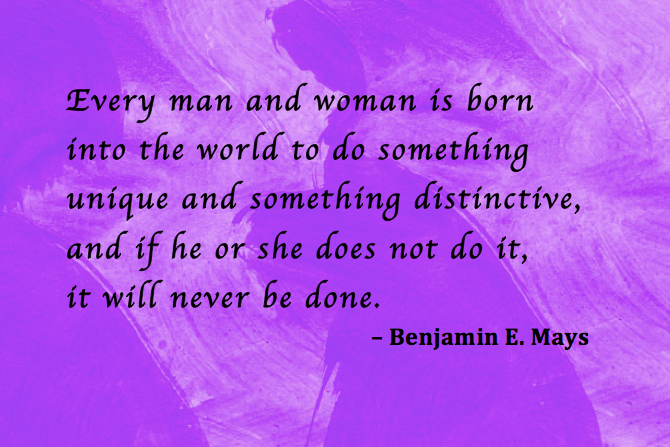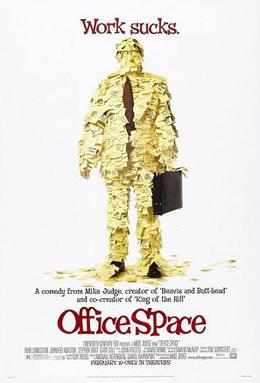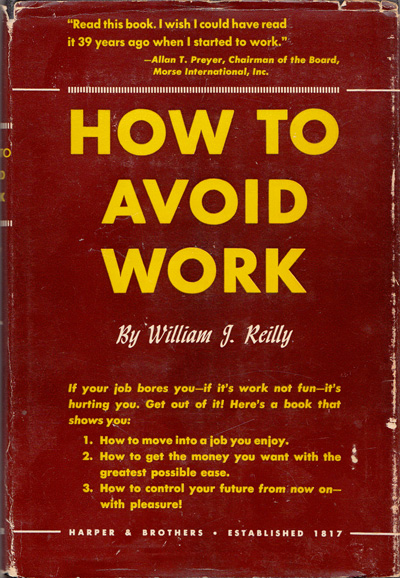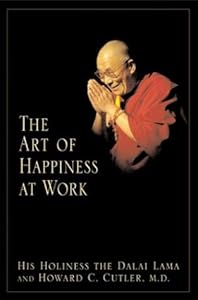Networking for jobs. When I mention the phrase to my Bates students, their noses wrinkle, their lips grow taut, and the tip of a tongue sometimes protrudes ever so slightly from their mouths. Disgust. That's what they're demonstrating. Pure disgust.
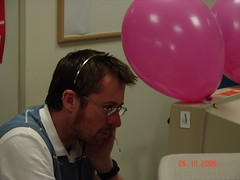
I get it. I used to be an active member of United Anti-Networking Individualists. It's a faith that effectively thwarts the creation of a fulfilling career, given that over 80% of jobs are unadvertised. My fellow worshipers and I were left with the plum jobs that everyone knows about.
The thing is, I joined the dark side. I now - gasp - proselytize for job networking.
Yes, it's true. As part of my mission, I offer you the top reasons we hate networking for jobs. And why we're completely wrong. Based on psychological science, no less.
1. I Don't Want to Bug People

Let's pause for a second and consider what happens when you contact someone with a networking request. You're essentially saying to that person, hey, you're in a great position in life and I'd like to emulate you, or at least get closer to emulating you, and I was wondering if I might ask you to talk about yourself for fifteen minutes or so, and share some of the awesome contacts that I'm envious you have made? Ah, yes, I see why this is "bugging people." Not!
Number one: People love to talk about themselves. That's the cardinal rule of human psychology.
Number two: People love to be praised and to feel like they're doing well on the social hierarchy. The second rule of human psychology.
So, "bugging people"? Uh, not so much.
2. I Want To Be Self-Sufficient
Ah, yes. The Western ideal run amock. I can do it myself! That's what you think, right? Then why do humans fall apart when they're socially excluded, suffering from depression and sometimes resorting to extreme aggression? Psychologists Baumeister and Leary claim that our "need to belong" drives much human behavior. In other words, we need one another to survive, both physically and psychologically. You're going against your basic nature if you assert otherwise. When you're in need (and when you're out of work, you are in need) that's the time to go with your evolutionary instincts, not fight against them.
3. I Have the Wrong Personality For Networking
OK, you're onto something here. Psychologists Wolff and Kim found that people who are extraverted and high in openness to experience are more likely to network for jobs than people with introverted, closed personalities. That said, personality does not dictate all of our behavior. We may have to go "against type" in order to network, but we're required to go against type everyday for a variety of reasons.
I mean, for a true introvert, holding a spontaneous conversation can be excruciating. But introverts manage to do this all the time (thankfully). You're not being asked to change who you are in order to begin networking for jobs; just to channel a different way of relating to the world. And only for a short while. Besides, if you are an introvert looking for a career, you're probably drawn to career paths that other introverts love. Meaning you get to network with other introverts. That's hella comforting (speaking from my introverted self).
4. I Don't Have a Network

Oh wow, you're a hermetic isolate who lives in a cave? I always wanted to meet someone like you (it's very hard to do, seeing as how people like you never emerge from your dwellings). What, you're not? You actually live in the real world? Then, hate to break it to you, you have a network. A network isn't some fancy-schmancy secret club of Ivy League graduates who sit around drinking scotch while their chauffeurs polish the Mercedes. A network is just people. Plain ol' people. If you ever talk to anybody, then you have a network. Period.
But wait, I feel my psychic skills abuzzing; your rebuttal is ringing in my ears:
5. No One In My Network Knows Anything About My Field
This may be true. Maybe your network is full of people with careers you detest, or with backgrounds you'd rather not admit. But who's in their network? And in those people's networks?
Here's a tale from my anti-networking days: I attended a career seminar at Cornell, back when I was plotting my great escape from grad school. To prove the power of networking, the career counselor made us each pair up with a random person in the room and see if we couldn't comb their network for someone related to what we wanted to do (and they ours). My partner got an immediate bingo from me; my dad worked in his prospective field. I, on the other hand, came up with peanuts from him. Peanuts.
There, I thought, proof that networking is a joke.

The counselor then went around the room, making everyone announce the connections they'd made. And they all had made connections. Except for me. (LOSER!)
When I professed my failure, the counselor kept hounding my partner and I, refusing to let the subject drop. You really have nothing to offer her? You can't get anything from him? Nope, we said, nothing.
As the seminar concluded, I went over to my partner and offered my email address, so that he could get in touch with my dad. As I handed it to him, I noticed a word on his Izod shirt (this clothing choice alone offers insight into why we had nothing in common). "Falmouth," I said, reading the word on his shirt. "As in Maine?"
"My Grandma lives there. Has her whole life."
"That's where I'm planning to move in a few months. To Falmouth, or nearby. And I don't know a single soul there."
The career counselor leaped over, like a possessed little jackal. "A-ha! I told you! Networking works!"
I glared at her, desperate to cling to my ideology. But as I talked to the grandma on the phone the next day, getting tips on where to live and where not to; the local publications in which to search for jobs; and the contact info of her niece who worked in social services, I couldn't help but question my anti-networking faith. Could networking be this powerful? And this easy? But still:
6. I Hate Using People
Here's the biggie, especially for you Millennials. Although you've come of age in the era of social networking, you're loathe to "use" those networks for personal gain. They're about self-expression and connection, right? Not about the trading of favors.
First, re-read Point #1 above.
Then stop and consider how you feel when you have a service you can offer to someone else. In the case of networking for jobs, it may be information about a certain career path, a connection to someone at your company, or the link to a friend or relative working in a particular industry. We humans are altruistic beings at heart, so when we give, we experience enhanced psychological well-being and decreased feelings of stress. We also earn social support from our actions.
As writer Elizabeth Scott says, "When people make altruistic personal sacrifices, they end up reaping what they sow in the form of favors from others. These individuals earn the reputation as altruistic people and end up receiving favors from others who they may not have even directly helped."
So, in essence, when you're asking others to help you, you're giving them the opportunity to experience more well-being, less stress, and the likelihood of returned favors in their future. Oh yes, this sounds like "using" somebody alright. Whatever you say.
Final Thoughts
Chances are I haven't made you a convert to networking for jobs just yet. It takes time. I know. But when you decide you're ready to fail Career Avoidance 101, a great start is to accept networking into your life.
I'm not only a Nutty for Networking member. I'm its President.
So what did I miss? What deters you from networking for jobs?
Sources:
Baumeister, R. F., & Leary, M. R. (1995). The need to belong: Desire for interpersonal attachments as a fundamental human motivation. Psychological Bulletin, 117, 497-529.
Twenge, J. M., Baumeister, R. F., Tice, D. M., & Stucke, T. S. (2001). If you can't join them, beat them: Effects of social exclusion on aggressive behavior. Journal of Personality and Social Psychology, 81, 1058-1069.
Wolff, H., & Kim, S. (2012). The relationship between networking behaviors and the Big Five personality dimensions. Career Development International, 77, 43-66.
Ooo, there's a balloon at the call center! That makes this job much more appealing. (Photo credit: Walt Jabsco)
Think people will react like this when you contact them? (Photo credit: Cayusa)
You live here? (Photo credit: Aesum)
None of your friends knows anything useful? Bummer... (Photo credit: Meer)










